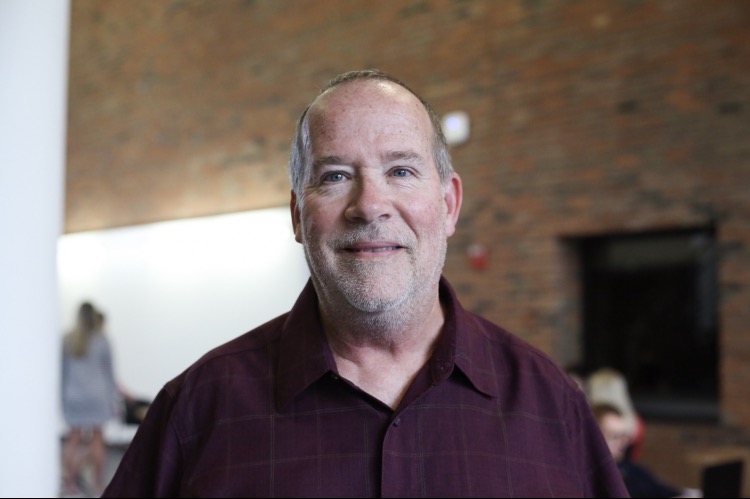Adjunct professor of psychology Dan Rotach responds to reactions in the aftermath of Jamie Hudalla’s column, Naked and Unafraid.
As a result of a recent article in the Clarion about sexuality, a number of people have asked for clarity in what I teach in GES208, Human Sexuality, at Bethel University. This is a general education course that looks at sexuality from an evangelical faith basis, and looks at sexuality as it is portrayed in
contemporary culture. The course description is this:
“An examination of authentic and inauthentic human sexuality, focusing on the nature of sexual and reproductive functioning, sexual self understanding, sexual dimensions of interpersonal relationships, and ethical dimensions of sexuality.”
There is a section in my class called “An Honest Hermeneutic” where I empower the students, when they are forging any life-shaping decisions, especially about sexuality, that they read, interpret and apply the Bible in ways that it was intended. We carefully examine what Paul and others in Scripture teach about human sexuality, specifically sex outside of marriage and before marriage. We look at various passages that speak of “sexual immorality” (porneia in the Greek) and conclude that most of the time the writers were using that word they were referring to illicit sexual behavior that was reflective of the culture of the day. But in I Corinthians 7, Paul brings the discussion of porneia into a discussion about sex outside of marriage. So, in the interest of an honest hermeneutic, I teach the students to make decisions on the whole of Scripture, or what is called by some as the “wisdom” view of decision-making, specifically in the areas of human sexuality. The wisdom view pays attention to:
- The collective wisdom of the Scriptures regarding sexuality
- The insights offered by writers like Judith and Jack Balswick, Lauren Winner, Debra Hirsch (all authors of the texts I use in class), all of whom undergird a “biblical” perspective of sexuality, though they each differ in some of their conclusions
- The insights offered by contemporary writers like Donna Freitas (also an author of one of the texts) who study the sexual activities of today’s college students and conclude that sexual activities like hooking up and friends with benefits are damaging to a person’s sexual development
- Contemporary research offered about the neurophysiology and neuropsychology of sexual activity
- Boundaries given to the students by Bethel, specifically the Bethel Covenant, at this chapter in their sexual understanding, development and practice
The conclusions I draw from these streams of wisdom, and therefore teach is that sexual intercourse is reserved for the covenant of marriage, as stated in the Bethel Covenant. The wisdom view also acknowledges that there is much in the Bible about respect, holiness, wholeness, equality and communication that inform our sexuality and sexual practices. In essence, the wisdom view empowers my student to gather material from many disciplines and make whole and holy decisions about sex.
One of the objectives of the class, according to my syllabus is:
“To help each person in the course become more at ease in discussing sexual issues, become better at understanding other points of view about sexual attitudes and values, and to become more understanding of those who have faced difficult personal sexual issues.”
I want my students to understand that there are other points of view in the evangelical community about sexual attitudes and values.
I want my students to be critical thinkers in the area of human sexuality and to carefully evaluate what they have heard about sex and believed about sex up to this point in their journeys, and make their own decisions. That is what the author of the Clarion article did, and I appreciate Jamie Hudalla’s critical thinking.
I want my students to be more understanding of those who have faced difficult personal sexual issues or drawn different conclusions about sex. My hope is that the understanding will lead to less judgement and more compassion to those individuals.
One of the dynamics of the Bethel Covenant is this:
“We view sexuality as one of God’s good gifts.”
It is difficult for many of my students to believe that about sexuality—that it is good. Some have been shamed for experiencing sex before marriage. As a pastor, licensed marriage and family therapist, and educator I have heard many stories from young adults who have been deeply damaged by the teachings out of the purity culture that tell the young adults that sex is bad, sexual desire is bad, and that the young adult who has experienced sex is now damaged goods. So, there is a lot of discussion in my classroom about grace to those who have experienced sex and have been shamed for it. I spend an incredible amount of time in class trying to help the students understand that they are not damaged goods, and the women in class are not in charge of mens’ sexuality—-the men are. I teach that sexual desire is not lust. I teach how parts of the purity culture have really damaged God-given sexual desire, and authentic sexuality.
The Scriptures actually teach more about grace to those who have made mistakes than what a person can and can’t do sexually before marriage.
I do not teach anything contrary to the Covenant.
I do not teach anything contrary to the Bible.
My classroom is a hermeneutically-honest environment.
My classroom is a safe environment.
My classroom is a shame-free environment.
My classroom is a critical thinking environment.
*This is an opinion piece and does not necessarily reflect the views of The Clarion.



















